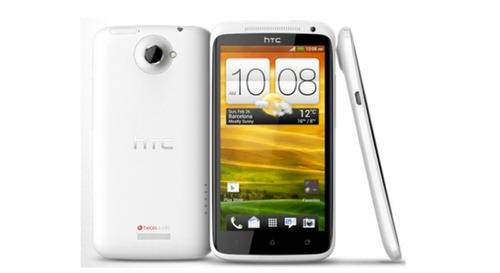
HTC has been a brand known for trying to hit the top of the market. Its recent smartphone builds have had slicks designs, top specs and high price tags. The company has focused on consumers with above average incomes in developed markets like the United States and Western Europe.
And has fallen flat.
Lukewarm Earnings
HTC knows it is in trouble. Its sales are stale and are expected to stay that way, if not worsen. It is facing stiff competition in the middle of the smartphone market from the likes of Nokia and BlackBerry along with a plethora of Asian manufacturers such as LG, Huawei and ZTE. Something needs to give. As such, HTC said today that it would begin producing lower-end smartphones and focus on emerging markets, especially China, according to Reuters.
HTC announced today that its revenue from Q4 2012 was $2.03 billion ($60 billion New Taiwan dollars). That is down from $2.37 billion (NT$70.2 billion) in Q3 2012. HTC CEO Peter Chou said he expects the results from the first quarter of 2013 to be even worse. Hence, the need to expand its product to different price structures targeted at a different market.
Having Trouble Competing? Find A New Market
It is not a surprising development. If a company runs out of room to grow in one market, the best thing to do is find another where it can. The U.S has proven itself to be Apple/Samsung centric, a reality that has hit the rest of the smartphone manufacturer industry hard (see the U.S. struggles of Nokia, Motorola, LG and BlackBerry). HTC has a variety of quality devices available in the U.S., including the One X+, Droid DNA for Android and 8X Windows Phone. Anybody looking for quality smartphones could do a lot worse than acquiring an HTC device.
You can peel away HTC’s problems like so many layers of an onion. Foremost, its brand strength lags behind that of Apple and Samsung. That means that even when HTC comes out with a top quality device, it lacks the excitement and anticipation reserved for new iPhones or Samsung Galaxies. As we have seen with the iPhone, that type of hype and consumer anticipation is very important to a smartphone maker’s bottom line.
HTC also has a logistical distribution problem, especially in the U.S., where its top devices are tied into exclusivity agreements with carriers like Sprint (Evo 4G LTE), One X+ (AT&T) and Verizon (Droid DNA). As we have seen, exclusivity agreements tend to be poor bets for manufacturers looking to make dents in the market. HTC’s declining revenues make it difficult to remedy either of those situations.
HTC’s declining revenue then makes its decision to focus on emerging markets easy to understand. If it cannot keep up with the big boys in the big market, try to make a dent with limited resources in nascent markets. It will still face stiff competition in the likes of China and India, but at least in those regions it can stretch its dollars further than it could in the U.S.
HTC’s new direction does not necessarily mean it will skip the top smartphone markets. The manufacturer is expected to announce its new “M7” Android smartphone at launch events in New York and London later this month.

















